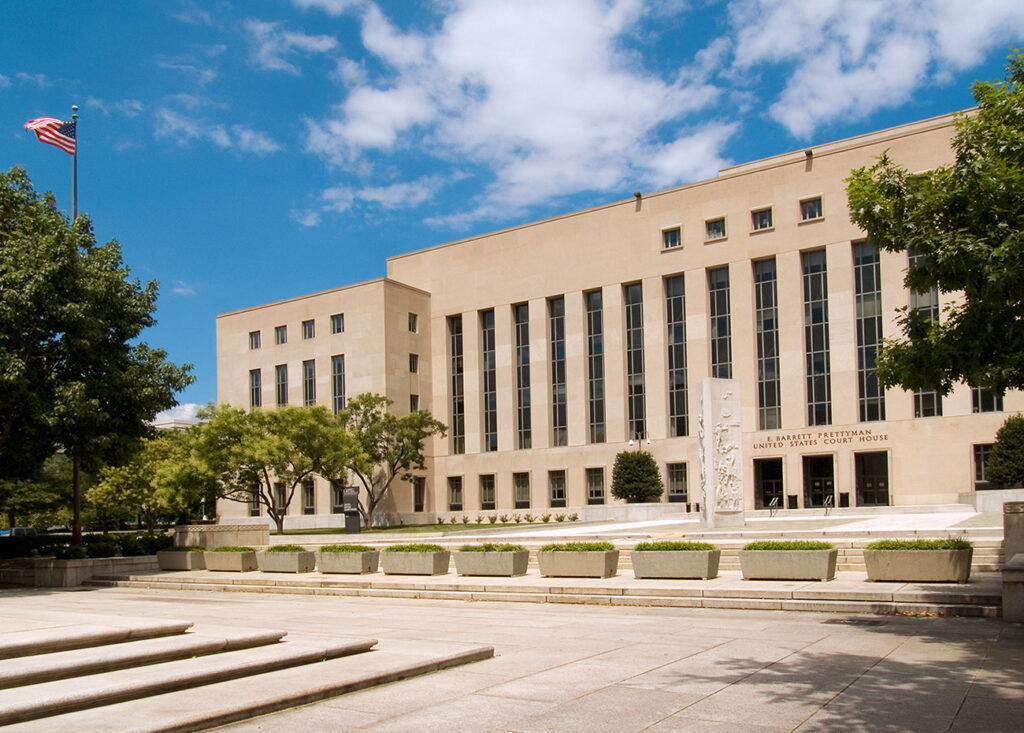WASHINGTON — A three-judge panel for the U.S. Court of Appeals for the District of Columbia Circuit on Tuesday grilled the Trump administration and the attorney for transgender service members who won a lower court order reversing President Donald Trump’s ban on transgender troops.

One judge on the panel voiced serious concerns about the lack of evidence the Defense Department cited when instituting the ban, while another expressed skepticism that the lower court’s nationwide order — instead of applying only to the transgender individuals who brought the case — was appropriate.
Administration officials appealed the case to the D.C. Circuit after district Judge Ana Reyes, appointed by former President Joe Biden, granted a broad preliminary injunction blocking Trump’s Jan. 27 executive order.
Eight active-duty service members and transgender individuals who are actively pursuing enlistment in the armed forces brought the case against Trump and Defense Secretary Pete Hegseth, among other officials and three branches of the U.S. military.
Trump’s January order asserted the “adoption of a gender identity inconsistent with an individual’s sex conflicts with a soldier’s commitment to an honorable, truthful, and disciplined lifestyle, even in one’s personal life.” Further, the order said that being transgender is “not consistent with the humility and selflessness required of a service member.”
The Trump administration is expected to “imminently” escalate a separate case on the same issue to the Supreme Court, U.S. Department of Justice attorney Jason Manion said in court Tuesday.
Evidence
Judges on the appeals bench queried both sides on whether the government has evidence to prove transgender individuals cannot fulfill military duties, and if the order bans all trans troops or only those diagnosed with gender dysphoria, a clinical diagnosis involving distress when a person’s gender identity differs from their sex at birth.
“If the military said people with red hair are just too fragile and vulnerable, we are going to kick them all out of the military, and we are going to not allow any of them ever to join, and we have no evidence of that, but we think they’re a threat to military preparedness, to unit cohesion, and too costly, and so we’re just going to kick them out?” asked Judge Cornelia Pillard, who was appointed during President Barack Obama’s second term.
Manion replied the transgender ban “policy relies on a condition that is marked by severe clinical distress.”
Under military deference — meaning the courts generally defer to the president and military on national security questions — the judges should accept Trump’s and Hegseth’s word on the policy, Manion said.
“If there are mental conditions that will impair someone’s ability to function in the military, or that the military could rationally judge would impair that, then that’s more than enough to satisfy rational basis review,” he said.
Pillard pushed back: Isn’t that the case for all people wanting to join the military, not just transgender individuals? Thousands of transgender troops are already serving, she said.
“If the concerns are with depression or suicidality, there already are standards that would screen someone out for those things, right?” Pillard said.
Trial court ‘overreach’?
Judge Neomi Rao challenged the plaintiffs’ likelihood to succeed, highlighting that the Supreme Court generally views broad orders from district judges as “overreach.”
Reyes’ order covers all transgender troops and those seeking to enlist, not just the eight plaintiffs who brought the case.
“The district court imposed effectively a universal injunction on this policy, going beyond any relief to these particular plaintiffs. So even putting aside the constitutional question, isn’t the government likely to succeed on challenging this remedy?” asked Rao, who was appointed during Trump’s first term.
Shannon Minter, civil rights attorney for the plaintiffs, said “the very nature of the injury” justifies far-reaching court protection.
“This is one of those cases where the injury alleged resides directly in the categorical nature of the policy itself, which declares that transgender people as a group lack the virtues of honesty, discipline, selflessness, integrity, that as such, they have to be purged from the military because they’re transgender, and because the government has this very negative view of what it means to be a transgender person,” Minter said.
In a separate case, the 9th U.S. Circuit Court of Appeals upheld a lower court’s ruling that allowed transgender troops to continue serving, denying the government’s appeal.
U.S. Supreme Court case upcoming
Judge Gregory Katsas, appointed during Trump’s first term, asked Manion, “Can you tell us anything about the government’s plans for seeking Supreme Court (review)?”
“I can’t give you an exact date, but it will be very, very quickly, very soon, and I think that may well be quite relevant to this court’s analysis as well,” Manion said.
Lambda Legal and the Human Rights Foundation, who are representing plaintiffs in the 9th Circuit case, released a statement Tuesday afternoon saying they “stand ready to continue to zealously represent our clients as we have at every juncture.”
“Transgender service members have been openly serving our country with honor and distinction for almost a decade and have met and are meeting every neutral service-based standard. The U.S. Supreme Court should reject the invitation to stay the district court’s injunction so that they can impose their discriminatory ban while the litigation proceeds,” the statement said.
This article is republished under a Creative Commons license from Kentucky Lantern, which is part of States Newsroom, a network of news bureaus supported by grants and a coalition of donors as a 501c(3) public charity. Kentucky Lantern maintains editorial independence. Contact Editor Jamie Lucke for questions: info@kentuckylantern.com. Follow Kentucky Lantern on Facebook and Twitter.
Ashley Murray covers the nation’s capital as a senior reporter for States Newsroom. Her coverage areas include domestic policy and appropriations.






